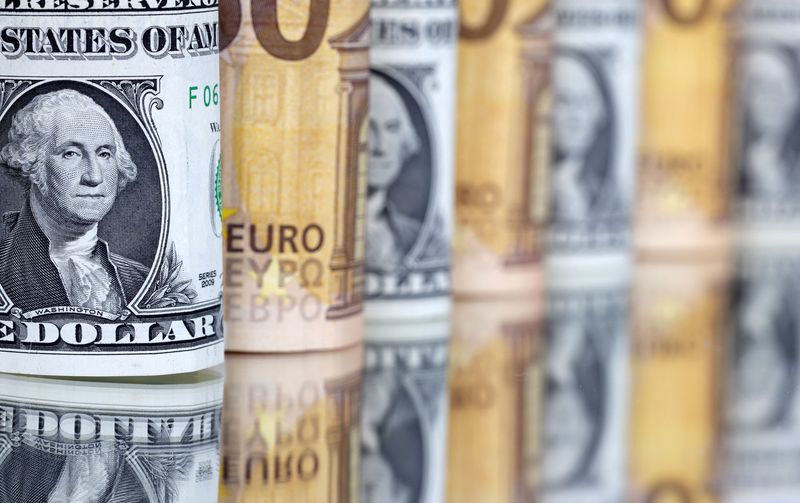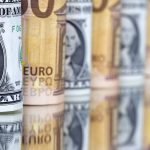TOKYO/LONDON (Reuters) -The U.S. dollar edged higher on Tuesday from its lowest levels in almost a month versus major peers in the previous session, as traders awaited testimony from Federal Reserve Chair Jerome Powell days after an unexpectedly soft U.S. jobs report.
The euro held its ground after Monday’s sharp swings as investors came to terms with a hung parliament in France, which points to a potential political gridlock, but lessens fiscal concerns stemming from outright far-right or leftist victories.
The U.S. dollar index, which measures the currency against six major peers, was last up 0.1% at 105.06, rising from an overnight low of 104.80, a 3-1/2-week trough.
The index slumped nearly 1% last week, exacerbated by Friday’s monthly payrolls report, which boosted bets for the Fed to soon start cutting rates.
Traders currently see about a 76% chance of a rate cut at the September meeting, up from 66% a week ago, according to the CME Group’s (NASDAQ:CME) FedWatch Tool. Another cut is expected by December.
“The recent run of weaker economic data (is) pointing to the prospect of Powell being more willing to signal the potential for rate cuts,” said Derek Halpenny, currency strategist at MUFG.
“We see the dollar as vulnerable to further selling today given the macro backdrop.”
Chair Powell is set to give two days of testimony before Congress, beginning later in the day, with the Senate and followed by the House on Wednesday.
The consumer price index (CPI) data on Thursday could also be crucial, market watchers said, with recent numbers showing a cooling from unexpectedly high levels at the start of the year.
The euro was trading lower at $1.0819, not far from Monday’s nearly four-week peak of $1.0845. The single currency also dipped as low as $1.07915 the same day.
Europe’s single currency has bounced around in recent weeks due to uncertainty over French politics, which still remains even after Sunday’s vote. The French left said on Monday that it wanted to run the government, but conceded that talks would be tough and take time.
“The euro appears to be waiting for cues from French coalition talks, with scenarios ranging from a left-wing government to a market-friendly technocrat prime minister,” said Francesco Pesole, currency strategist at ING.
“FX volatility has continued to drop in the meantime, but EU politics, Powell’s testimony today and U.S. CPI on Thursday may revamp it.”
Sterling was also down slightly at $1.2799, after rising as high as $1.28455 on Monday, its strongest levels since June 12.
The yen was little changed at 160.93 per dollar, finding some equilibrium this week after rebounding from Wednesday’s nearly 38-year trough of 161.96.

The currency has found little succour in increased speculation the Bank of Japan may raise rates again on July 31, following the first hike since 2007 in March.
Japan’s central bank is also due to announce a plan for quantitative tightening at its month-end policy meeting. The BOJ on Tuesday released a summary of opinions it collected in a survey of bond market participants on how the central bank should taper its huge bond purchases.
To read the full article, Click Here

